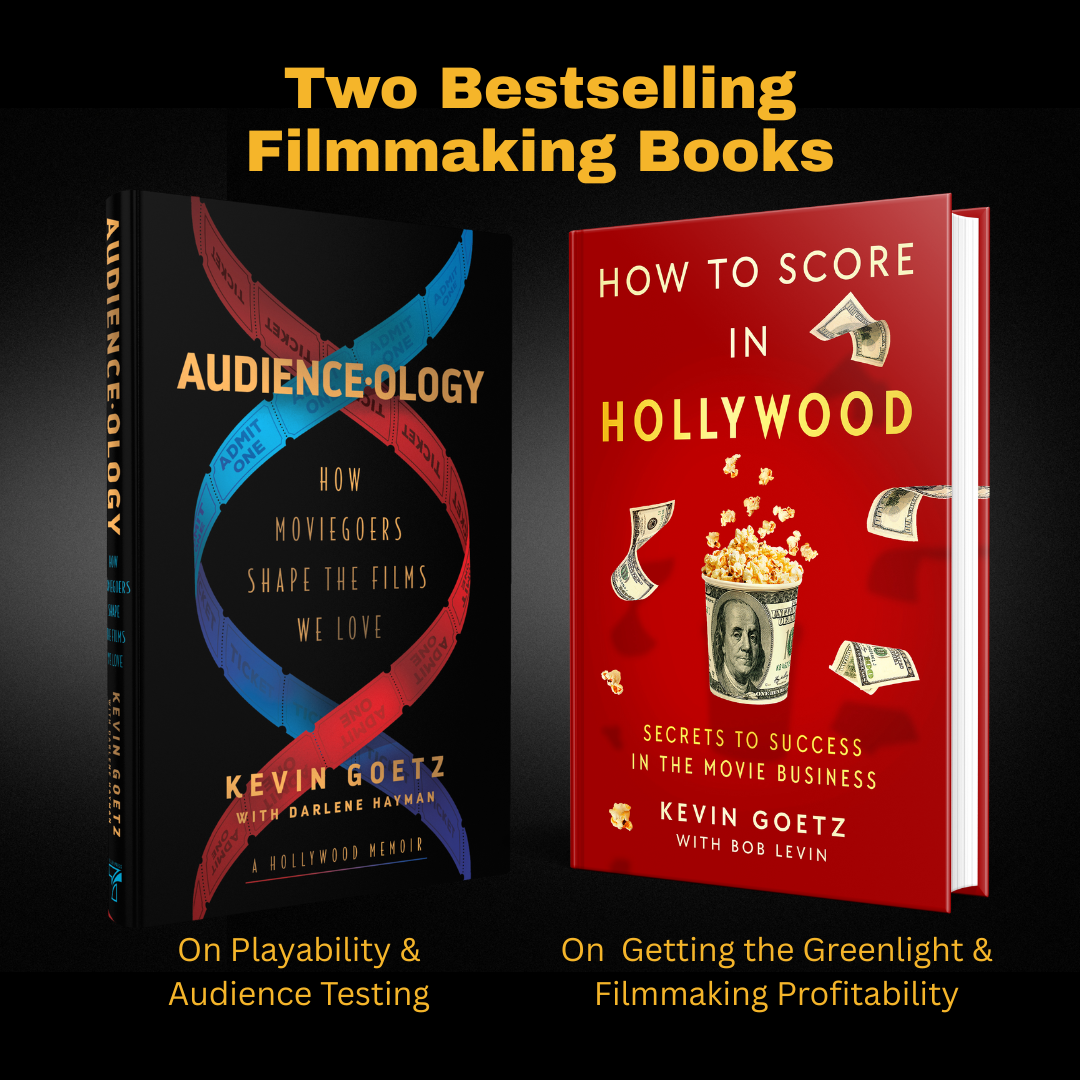
Don’t Kill the Messenger welcomes film editor and producer, George Folsey Jr.
In this episode of “Don’t Kill the Messenger,” host Kevin Goetz sits down with George Folsey Jr., the legendary film editor and producer whose illustrious career spans over five decades in Hollywood. Folsey Jr. is known for his masterful work on iconic films including Animal House, Trading Places, An American Werewolf in London, The Blues Brothers, and Michael Jackson’s groundbreaking music video, Thriller. As both an editor and producer, he has collaborated with acclaimed directors like John Landis, Eli Roth, and Paul Feig, earning a reputation as one of Hollywood’s most trusted “fixers.”
Kevin Goetz on George Folsey Jr.:
I always call you, as a joke, oh, George is here, the fixer. You’ve been on many movies that they’ve called you in on. I’ve seen it over the years. I’ve worked on many movies with you, movies that were not even yours initially that you came in on to fix, to help. So that is a really interesting superpower that you possess because it really is the leitmotif of George Folsey Jr.
Growing Up in Hollywood’s Golden Age
George discusses growing up around Hollywood royalty. His father, George Folsey Sr., was a legendary cinematographer with 13 Academy Award nominations, but George Jr. remained grounded: “I just felt that it was where my father worked and this was just the way things were. He worked in the movie business. I didn’t see it any different than any other business. And going down to visit him on his sets was such a pleasure. I met Judy Garland, Mickey Rooney, Lana Turner, Esther Williams, who I had a terrible crush on, and it was just a wonderful way to grow up.”
Learning the Craft
Folsey Jr. recounts his early years as an editor and cutting his teeth editing TV news at KABC. He shares how he learned his editing process from his mentor, Henry Berman:
I got a job as an assistant editor at MGM, and they assigned me to Henry Berman, famous editor who had worked with my dad. And I didn’t know much about editing features at that point. So we’re coming back from lunch one day and a guy comes up to Henry and says, Hey, Henry, I understand you’ve got a system and can you tell me about it? And Henry’s nicest guy in the world says, sure. So my ears perked up, and Henry explained his system that he used. I don’t think you want me to explain it, but it was just a simple way of organizing the film, going through the film and picking out the pieces you liked and fixing it. And I’ve always used that system and it’s done very well for me. And Henry became a great friend, and we actually edited a couple of movies together as co-editors.
The Making of Trading Places
Folsey considers Trading Places one of his favorite projects, though it came at a challenging time. He details a tense relationship with producer Aaron Russo that eventually led to unexpected validation: “He and I had a very nasty relationship until the end of the movie when he came up to me and he said, ‘we haven’t had much fun on this movie’… and he said, ‘what you did on this movie, I couldn’t have done.'”
The Twilight Zone Tragedy
With emotion and candor, Folsey discusses the devastating accident on The Twilight Zone set: “Turns out after the five years between the accident and the jury’s verdict in which everybody, all five defendents, including myself and Landis, were acquitted of all the charges. We were able to show exactly what happened. And what happened was an accident… The jury came out at the end of the trial and gave a press conference and said, ‘we saw this as an accident and we don’t understand why you prosecute people for an accident.'”
The Art of the Fix
Folsey’s approach to fixing troubled productions reveals his unique philosophy: “What I really think of myself is, and it becomes from all the movies that I’ve tried to fix, some successfully, some not. I just think of myself as a person that is, whatever job I’ve got, either editor or producer, second unit director, whatever, just trying to help everybody make the movie as good as we can make it.”
He elaborates on his method: “The trick is, when you’re going to fix a movie, a lot of people come in and say, ‘we’re just going to clean house.’ And that’s without question the worst thing you can do because you alienate the director, the editor, alienate everybody. They know the movie better than you… So I would try to befriend them and help them.”
The Animal House Experience
Folsey shares insights about the making of the classic comedy: “Whatever the context of a test screening is, you’re finding out what a cross section of the audience thinks about your movie… We never tested Animal House. We had a preview in Denver, and of course the studio was never much of a fan of Animal House…the audience was so hyper crazed. They damn near tore the seats out of the theater.”
On Test Screenings and Audience Feedback
His views on audience testing reflects years of experience: “I think it’s a good thing because it’s not like you’re doing a painting and buying some paints. You’re making this movie, and there could be millions and millions of dollars involved and people’s careers involved, and you got one shot at it. You release the movie and good luck and anybody that can help you make the movie better, make it more appealing to the audience, why wouldn’t you take advantage of that?”
Folsey speaks with pride about his work on Cheaper by the Dozen, where his instincts about the children’s characterization led to significant improvements: “I kept noticing that the kids were really ungrateful… And I turned to Bob Simon and Sean, and I said, ‘I just want to be sure I get this right. And do you want these kids to be these nasty, ungrateful little brats or should we fix it?’… So we went through every take… And either found a better tape that was less hostile or cut the line out.”
Drawing from his five-decade career in Hollywood, George Folsey Jr. offers insights into Hollywood history, editing, and producing. His candid insights into working with directors like John Landis and Paul Feig, collaborating with Michael Jackson on Thriller, and helping shape classics like Trading Places and Animal House offer listeners a glimpse into the craft of film editing. His honest discussion of career challenges, including the Twilight Zone tragedy, and his philosophy on film editing and test screenings reveals not only his technical expertise but also his passion for storytelling and audience engagement.
For the full conversation, check out the podcast episode here. And let us know your thoughts on the episode in the comments!
Don’t Kill the Messenger, hosted by movie and entertainment research expert Kevin Goetz, brings his book Audienceology to life. This bi-monthly podcast takes a peek behind the filmmaking curtain as Kevin talks with famous filmmakers, studio executives, stars, and other creatives about movies, filmmaking, audience test screenings, and much more.
For more information about George Folsey Jr.:
For more information about Kevin Goetz:
Website: www.KevinGoetz360.com
Audienceology Book: https://www.simonandschuster.com/books/Audience-ology/Kevin-Goetz/9781982186678
Facebook, Twitter, Instagram: @KevinGoetz360
Linked In @Kevin Goetz
Screen Engine/ASI Website: www.ScreenEngineASI.com






